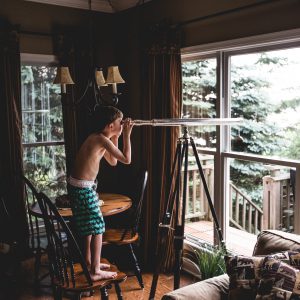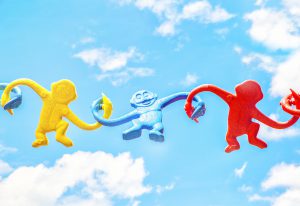Summer is quickly coming to an end. And with friends and colleagues chasing the coming eclipse we’re talking in the office about the importance of vacation, time away from solving complex problems, working toward new solutions, an ordinary day at work.
Vacations, while important, are fraught with anxiety. Often times, I think I can’t be away from projects, clients, and deadlines. At the same time, I crave retreat time and the unfolding of my thoughts, habits, and routines, I’m anxious at stepping away from my devices. And I’m not alone.
With Americans working more hours than any other industrialized nation, and with research making it clear that all of our overworking isn’t getting us ahead, it’s time to take a look at our work/life balance.
As we’ve explored before, creative brains lose focus when they don’t get enough sleep and can greatly benefit from disconnecting. But in an industry where there’s a seemingly never-ending line of projects to finish and deadlines to meet, sometimes, things fall a little off balance. A recent study found that 87% of knowledge workers admit to working more than a typical 40-hour workweek, and 23.4% put in more than 50 hours a week. And 71% of responders admitted that they were unhappy about putting in the extra time. The corporate, and even creative, work cultures have unwittingly created an environment that is literally wearing us down.
As one of the founders of a creative company, I see the importance of maintaining work/life balance not only for myself and my own well-being but for our teams and employees. If we’re not setting a good example at the top, it’s likely the rest of the team won’t feel they have the freedom to take care of themselves as well. With that in mind, we put together a list of ways that we maintain work/life balance for ourselves and encourage our employees to follow:
Put Health First
From mental health to physical ailments and even sick family members, when our well-being is on the line, we must take the time to take care of ourselves (or our loved ones). From exercising and eating right to taking a sick day when we need to, in order to bring balance back to our lives, we need to put our health — and that of our employees — first.
Encourage Passion Projects
We are firm believers that passion projects drive innovation, and encouraging those passion projects for ourselves and our team members allows us all some much needed creative freedom and the ability to take a sanctioned break from our day-to-day. The result, hopefully, is that we’ll all feel re-inspired and reinvigorated.
Respect Creative and Personal Refresh Time
Creative companies tend to lead the corporate pack when it comes to setting examples for prioritizing the importance of “free time. Reclaiming weekends and evening hours makes for happier and more productive employees. It’s simple, and yet many companies still cling to the ethical virtues of round the clock availability. Certainly, emergencies happen, snafus occur, but establishing and maintaining clear signs around peoples’ free time sends a clear message, we can’t lose sight of our or our team’s humanity.
Promote Vacation Time
Maybe we can’t all offer unlimited vacation time, and there’s some controversy on whether or not it actually discourages employees from taking time off, but we can make it clear that vacation time is meant to be taken. From working with employees who never seem to use their two weeks, to touting the benefits of travel directly and taking our own vacations, we need to ensure that taking time off is seen as a worthy path to nurturing the creative soul.
That’s just a small list of how we can begin to incorporate better work/life balance into our days. How do you or your company encourage better living through less?
photo courtesy of Leio McLaren/Unsplash



